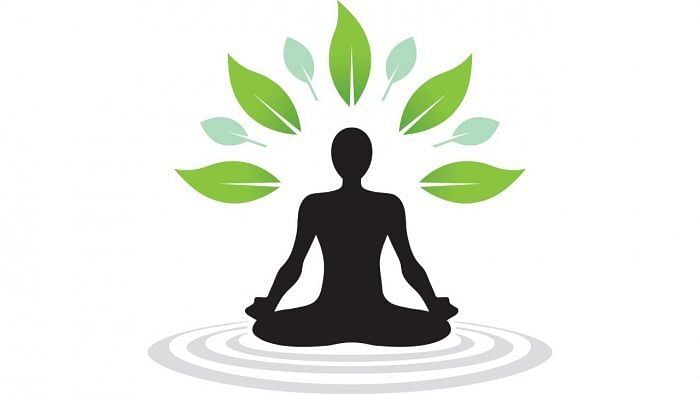
Oasis.
Credit: DH Illustration
Understanding the true significance of three fundamental aspects of life—time, food, and freedom—can greatly enhance one’s comprehension of life, fostering inner peace and tranquility.
All of us consume time until the moment to consume us arrives. Time treats all equally, irrespective of our being extremely poor, opulent, illiterate, or men of letters. Similarly, all of us consume food; there is none among us who doesn’t. And all of us aspire to be free. Neither can we escape time nor the necessity of food. We don’t live in the state of consciousness in which exceptional beings like Giribala or Prahlad Jani lived. But what about freedom? Would we ever choose to live without freedom? Doesn’t history tell us that we are willing to sacrifice our lives in order to win back our freedom, even if it is merely our political freedom that is snatched away from us?
The quality of our consciousness plays the most important role in determining both the quality of food we choose and how we use our time. Choosing the right food, consuming it at the right time, within the right environment, and in the right state of consciousness contributes to the quality and quantum of various forms of freedom we experience, such as freedom from illness. Using time wisely can enhance its value, ultimately transforming it into something priceless. When one’s time becomes invaluable, that is the moment of one’s transcendence from materiality to spirituality or reality.
So, the only thing that qualitatively differentiates one person’s life from another person’s is essentially the degree of freedom one experiences. And freedom is essentially an attribute of consciousness. Therefore, we can conclude that the quality of life depends on the state of one’s consciousness. In order to understand this point further, take a moment to reflect on the following four words: liberation, salvation, freedom, and independence. You might notice that the meanings of these words vary depending on the context in which they are used. Otherwise, they could all be synonymous.
It is the degree of clarity in one’s consciousness that proves decisive whether one would commit one’s life for liberation, salvation, freedom, or independence. Who decides the quality of consciousness? How is it decided? What are its constituents? How do you differentiate one state of consciousness from another? Consciousness is not the mood that is driven by emotions, thoughts, and ideas.
Does consciousness have any relationship with vision? Is vision dependent on the visionary, observer, or seer, or is it the other way around? Is consciousness independent of the observer? Especially the observer or seer who eats food like you and I do yet, may have transcended time.